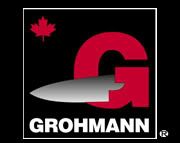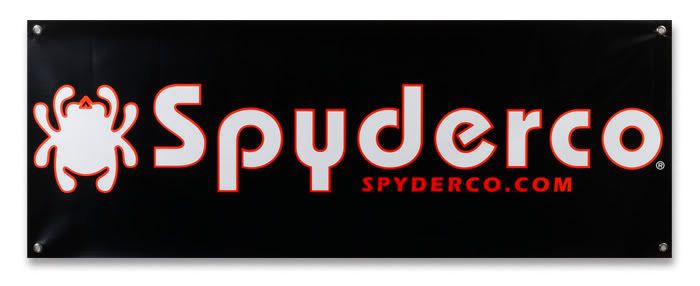In the most recent issue of Rifle magazine, Dave Scovill has made some comments in his monthly column. Those comments are directed at some who Mr. Scovill feels might be expecting too much of the Marlin rifles. I believe, from reading the article, that he feels that way based on questions on conversions that he receives. He also posts a chart showing common lever gun rounds and the SAAMI pressure standards for those rounds.
This has caused no end of comments in a topic on the Leverguns.com forum. Many, including yours truly, have weighed in with words of wisdom regarding Mr. Scovill's article. Some are actually wise, some aren't. I feel as though I've been invited to a wrestling match with a pig. You know, you both get dirty but the pig LOVES it. That's what has made me think about this subject of cartridge suitability for the Marlins, most particularly the M336. It has also made me rethink my work with the .38-55.
I'll start by saying I'm not going to disappoint any readers of this blog or people who think that the .38-55 can be safely loaded to 42,000 psi same as the .30-30. I will continue to do so. In actions which will accomodate the 7-30 Waters (45K psi) and the .30-30 or .32 Special (42K psi) I think it is logical, reasonable and safe to load the .38-55 to 42K psi and I think that means that my load of 32 gr. of RL-7 under the 255 gr. Barnes Original or Stone Fence bullet is safe and within these standards.
However, I do not believe a couple of things that some do seem to believe or know. First, case shape does affect breach thrust in actions where the case head does not contact a standing breach. This includes the leverguns. In the leverguns, the bolt acts as a piston and pushes against other moving parts such as the locking lugs/bolts and over the distance of the length of the bolt can have a greater affect on the action.
The second is that the Contender, is a different animal and in that "case", where the case head contacts the standing breach (a part of the frame, not a moving part), the surface area of the case head and how much pressure is actually transfered to the breach is what is important.
This has been debated ad naseum over the years but I'm going to take a stand that I will follow in how I handle my own guns and reloading. I'm not going to rechamber the Marlin M336 for cartridges which produce in excess of 45K psi.
skip to main |
skip to sidebar
"A free people ought to be armed."
(President George Washington, Jan 14 1790, Boston Independent Chronicle.)
"Necessity is the plea for every infringement of human freedom. It is the argument of tyrants; it is the creed of slaves."
(William Pitt,Nov. 18, 1783)
Join the NRA Today!
Pages
- Home
- - The 10 Commandments
- - The Declaration of Independence
- - The Constitution of the United States of America
- - George Washington - First Inaugural Address
- - The Gettysburg Address
- - The Oath of Enlistment
- - The Videos Page - All the videos that might be interesting...
- - Bill of Sale
- - For Sale or Trade
- - The Flag
Food for Thought
"Trust in God and fear nothing." Captain Lewis A. Armistead
(President George Washington, Jan 14 1790, Boston Independent Chronicle.)
"Necessity is the plea for every infringement of human freedom. It is the argument of tyrants; it is the creed of slaves."
(William Pitt,Nov. 18, 1783)
"Stand your ground. Don't fire unless fired upon, but if they mean to have a war, let it begin here." Captain John Parker, Apr. 19, 1775
The Four Rules
1. All guns are always loaded.
2. Never let the muzzle cover anything you are not willing to destroy.
3. Keep your finger off the trigger until your sights are on the target.
4. Be sure of your target and what is behind it.
Email Hobie
The Four Rules
1. All guns are always loaded.
2. Never let the muzzle cover anything you are not willing to destroy.
3. Keep your finger off the trigger until your sights are on the target.
4. Be sure of your target and what is behind it.
Email Hobie
Followers
Popular Posts
- The Browning Lever Action Rifle (BLR), By - Bruce Hamlin
- Differentiating between the Pre-64 and Post-64 Winchester Model 94s by Joe Miller
- Italian Black Powder Arms Manufacturing Codes...
- .40 Caliber Volcanic Rifle by Charlie
- The +P Phenomenon by SaxonPig
- Ithaca M37 Riot Shotgun
- Winchester 94 Under Carrier Jam
- Winchester 1876 SRC NWMP Reproduction - Revised
- Browning Auto-5
- .30 Remington AR
Right to Keep & Bear Arms
Forums
- - 1911
- - 230 Grain
- - 24 Hour Campfire
- - 454 Casull
- - Accurate Reloading
- - Adirondack Sportsman
- - Alaska Outdoors Forums
- - American Longrifles
- - American Single Shot Rifle Association
- - Archery Talk
- - Armed Polite Society
- - ATG Reloading
- - Badger and Blade
- - Black Powder Cartridge Rifle (BPCR)
- - Brian Enos's Forums
- - Bruce Hamlin's Pump Rifle Forum
- - Bushcraft USA
- - CALGuns
- - CAS City
- - Cast Boolits
- - Cast Bullet Association, Inc.
- - CMP
- - Colt
- - Combat Carry
- - Defensive Carry
- - Double Actions
- - Doublegun Shop
- - Downrange TV
- - Firearms Forum
- - Fox Collectors
- - Gary Reeder
- - GlockPost
- - Graybeard
- - Gun Boards
- - Gun Rights Media
- - GunHub
- - Handloads
- - Hobie's Corner
- - Levergun Lovers
- - Luger Pistol
- - M1911
- - Make Ready
- - Muzzleloading
- - New Powder Room
- - OpenCarry.org
- - Paco Kelly's Leverguns
- - Remington Society of America
- - Rimfire Central
- - Rossi Rifleman
- - Ruger Collectors' Association
- - RugerForum.com
- - RugerForum.net
- - Saubier
- - Second Amendment March
- - Shiloh Sharps
- - Shotgun World
- - Single-Actions
- - Smith and Wesson
- - Specialty Pistols
- - Star Reloaders
- - Steel Chickens
- - The Firing Line
- - The High Road
- - Vintage Semi-Auto Rifles
- - Virginia Gun Trader
- - We the Armed
- - Wehrmacht Awards
- - West Virginia Sportsman
- - Winchester Collectors
- - Wooden Boat
Blogs
- - 150 Years Ago Today
- - Adobe Wall's Place
- - American Rifleman Blogs...
- - Another day... Another...
- - Better and Better
- - Blind Pig & the Acorn
- - Bob Shell's Blog
- - Civilian Self Defense Blog
- - Cleanup ATF
- - Colt V-Spring Adventures
- - Empty Cases
- - Expert Witness
- - Firearms History, Technology & Development
- - Girls Just Wanna Have Guns
- - Grant Cunningham
- - Gun Time
- - Guns America
- - Guns! Guns! Guns!
- - Hi-Powers--Handguns
- - Home on the Range
- - Il Ling New
- - John Lott
- - Lawdog Files
- - Liberal Gun Guy
- - Lynn C. Thompson
- - Massad Ayoob on Guns
- - MauserGirl
- - Michael Bane
- - Mr. Completely
- - New Jovian Thunderbolt
- - Nobody Asked Me
- - Odd Staunton
- - Of Arms and the Law
- - Oleg Volk
- - Packing Pretty
- - Paul Moreland
- - PawPaw's House
- - Power Play
- - Ranch13
- - RVB Precision
- - Schneier on Security
- - Sheriff Jim Wilson
- - Straight Forward in a Crooked World
- - The Armed Citizen
- - The Arms Room
- - The Blazing Orange
- - The Firearms Blog
- - The Girls Guide to Guns and Butter
- - The Molly Minute
- - The Red Barn Window
- - The Sentinel
- - The Shootist
- - The Sixgun Journal
- - The Ten Ring
- - The Volokh Conspiracy
- - The War on Guns
- - The Woodsman
- - Tony's Bullseye Blog
- - True Blue Sam the Travelin' Man
- - U.S. Concealed Carry Assoc.
- - View from the Porch
- - WikiWep
- - Women of Caliber
- - Wouter's Blog
- - Xavier Thoughts
Enthusiasts, Professionals & Collectors
- - .357 Maximum
- - Boggus Performance Shooting
- - Cartridge Collectors' Exchange
- - Cast Pics
- - Classic Sporting Arms
- - David Carroll Collection
- - DIY Ballistics
- - Five Shot
- - Guns and Bullets
- - Harry O's .41 Long Colt
- - John Ross
- - Model 2 Project
- - Real Guns
- - Ruger Collectors Association
- - RVB Precision (more than firearms!)
- - Sam Lisker's ColtAutos.com
- - Single Actions
- - Steve's Pages
- - Stopping Power
- - Texas Fivegun's Channel
- - Texas Longhorn Arms Project
- - The Frugal Outdoorsman
- - The Sixgun Journal
- - The Snubnose Files
Essayists and Writers
Books
Bullet and Mold Makers
Competitive Shooting Organizations
Engraving and Jewelery
Firearms Auctions/Sales
- - Amoskeag Auction Company, Inc.
- - Auction Arms
- - Bonhams and Butterfields
- - Cowan's Historic Firearms and Early Militaria
- - Greg Martin
- - Gunbroker
- - Heritage Auction Galleries
- - J. C. Devine, Inc.
- - James D. Julia
- - Kull's Old Town Station
- - Morphy Auctions
- - Rock Island Auction
- - Thomas Del Mar Ltd
- - Web Chronicle Gun List
Firearms Storage
Gunsmiths, Stock, and Grip Makers
- - Ajax Custom Grips
- - Cylinder and Slide Shop
- - Cylindersmith
- - D&T Custom Gunsmithing
- - David Clements
- - Doug Bates (Singers Glen)
- - Douglas Barrels
- - Esmeralda Custom Grips
- - Fletcher Custom Pistols
- - Grant Cunningham
- - Grasshorn Gun Works
- - Hunter Restorations
- - N. C. Ordnance, Inc.
- - Rowen's Custom Grips LLC
- - Shuff's Parkerizing and Military Arms Restoration
- - SK Custom Grips
- - Steve's Gunz
Information/Instruction Resources
- - 6mmBR.com Targets
- - Abbreviations, Terms, and Definitions
- - Ammo Smith
- - ATF Firearms Publications
- - ATF National Firearms Act
- - ATF Open Letters
- - Ballistics Calculator
- - BGT Research
- - Blue Book on Firearms Serialization
- - Browning Machineguns
- - Bullard Repeating Arms Company
- - Bullet Stability Calculator (XLS)
- - Carlson's Choke Tube Interchange (PDF)
- - Colt Pistols Model Numbers Reference
- - Colt Revolver Model Numbers Reference
- - Cornered Cat
- - Corrosive Primer Redux
- - Deer Processing Pamphlet (zip file)
- - Defensive Training Concepts
- - Emergency Living Skills
- - Exploded Firearms Drawings (Schematics)
- - Firearms Manuals
- - Firearms Manuals (PDF)
- - Firearms Racks
- - Gun Talk TV
- - Gunner's Den Cross Reference Guide
- - Handgun law
- - History of Shotshells
- - Hornady Ballistics Calculator
- - Internet Movies Firearms DataBase (IMFDB)
- - Killology
- - King Gun Sight Company Catalog #21 (43 pages)
- - Lethal Force Institute
- - Movie Guns
- - Official U.S. Time
- - Ordinal Date Calendar
- - Proofhouse.com
- - SAAMI
- - Savage99.com
- - StolenWeapon.com
- - Tactical Pink
- - Textbook of Military Medicine
- - The Cornered Cat
- - The History and Art of Shotshells
- - The Home Gunsmith
- - USA Carry
- - Winchester 1894/94 pre & post 1964 differences
- - Winchester Dates of Manufacture
- - Wrong Woman
Knives
Leather Goods
Magazines & Other Publications
Military Support Organizations
- - A Million Thanks
- - Adam C. Conboy Memorial Fund
- - Adopt a Platoon
- - Any Soldier
- - Armed Forces Children's Education Fund
- - Blue Star Mothers
- - Building Homes for Heroes
- - Fisher House
- - Iraq and Afghanistan Veterans of America
- - Marine Corps - Law Enforcement Foundation
- - National Law Enforcement Officers Memorial Fund
- - Operation Gratitude
- - Project Compassion
- - Remembering the Brave
- - Special Operations Warriors Foundation
- - U.S. Troop Support Foundation
- - USO
- - Wounded Warrior Project
Powder Manufacturers & Retailers
Retailers (Reloading, Sights, Accessories, Parts...)
- - Ballistic Products Inc.
- - Bob's Gun Shop
- - Brownells
- - Buffalo Arms
- - Cain's Outdoor
- - Graf & Sons
- - Great Outdoors Gun Shop
- - H&C Reloading Accessories
- - Harrell's Precision
- - Huntington's Die Specialties
- - Merit Corporation
- - Midsouth Shooters' Supply
- - MidwayUSA
- - Natchez Shooters Supply
- - Nevada Western Firearms
- - Nuckols Gun Works
- - Numrich Gun Parts
- - Poppert's Gun Parts
- - Skinner Sights
- - Tech Sights
- - Tin Cup Sports
- - VTI Gun Parts
- - Winchester Bob
- - Wisner's
Shooting Games & Simulations
Talk Radio - Preserving Our Rights
Videos & Web Cams
- - Crazy Horse Monument Web Cam
- - Grandfather Mountain Web Cam
- - Katey's Firearms Facts
- - Military.com Videos
- - Montana Web Cam Directory
- - Monterey Bay Aquarium Otter Cam
- - Mount St. Helens Web Cam
- - Mount Washington Observation Deck
- - Mr. Squacks Squirrel Skinning
- - My Music Videos Post
- - Talking to the Police - Don't Do It
Past Entries
Labels
- 45-75 (26)
- AirGuns (3)
- AjaxGrips (7)
- Ammunition (18)
- Animals (19)
- AR-15 (20)
- Archery (9)
- Bicycling (1)
- Blackpowder (31)
- BlacksmithingandMachining (1)
- Boats (4)
- Books (54)
- Browning (19)
- Cleaning (1)
- Clothing (3)
- Colt (39)
- Communications (1)
- Competition (3)
- Conditioning (2)
- Environment (1)
- Family (110)
- Fishing (2)
- Food (6)
- ForSale (2)
- Forums (1)
- FreedomArms (3)
- Friends (3)
- Futuristic (1)
- General (319)
- GunsIHaveOwned (102)
- Gunsmithing (66)
- Handguns (200)
- History (26)
- Humor (7)
- Hunting (86)
- Industry (9)
- Inspirational (1)
- Ithaca (2)
- Knives (23)
- Leather (6)
- Levergun (45)
- LifeLessons (13)
- Maps (1)
- Marlins (15)
- Mausers (2)
- Memorial (25)
- Mike (2)
- Military (40)
- Milsurp (23)
- Music (2)
- NotesFromTheGunShop (130)
- Politics (88)
- QandA (1)
- Reloading (150)
- Remington (9)
- Reproductions (37)
- Retailers (1)
- Rifles (88)
- Rimfires (72)
- RossiLever (8)
- Ruger (36)
- SavageStevens (6)
- SelfDefense (45)
- Shotguns (24)
- Sig-Sauer (1)
- Sights (10)
- SmithandWesson (35)
- Survival (3)
- Swords (2)
- ThompsonCenter (46)
- Travel (19)
- USFA (5)
- video (21)
- Webley (2)
- Winchesters (31)
NRA Newsfeed
FTC Advertising Notice
The FTC seeks to regulate blogs which advertise product or advocate for certain political views. The author of this blog is not compensated by any company for use, review, remark, link to, or mention of of any product on this or any other blog at any time or in any amount. Products shown, mentioned, reported, demonstrated, or linked to from this blog are those which the author has found to be of high quality, useful, interesting or otherwise needed by himself, family, or friends because of personal experience and the mentions, reports, demonstrations and links are meant to benefit readers but are not to be construed as an endorsement of the product, service or information provided.
Political comments, whether they be the views of the author or opinions on the views, policies or actions of political figures, parties or organizations, formal or informal, are solely those of the author and protected under the 1st Amendment to the Constitution of the United States of America.
This blog is therefore not covered by the FTC restrictions in any way, shape or form.
Political comments, whether they be the views of the author or opinions on the views, policies or actions of political figures, parties or organizations, formal or informal, are solely those of the author and protected under the 1st Amendment to the Constitution of the United States of America.
This blog is therefore not covered by the FTC restrictions in any way, shape or form.
Legal Disclaimer
This blog is a journal intended to inform and entertain my grandchildren. The reader is solely responsible for the correct use and/or application of any and all load data or other information provided herein. Neither the author, sources, nor my heirs or assigns are in any way responsible for the misuse or misapplication of the contents of this blog. It is the reader's responsibility to comply with law and regulation in effect at the place where application of the included information is attempted.





















